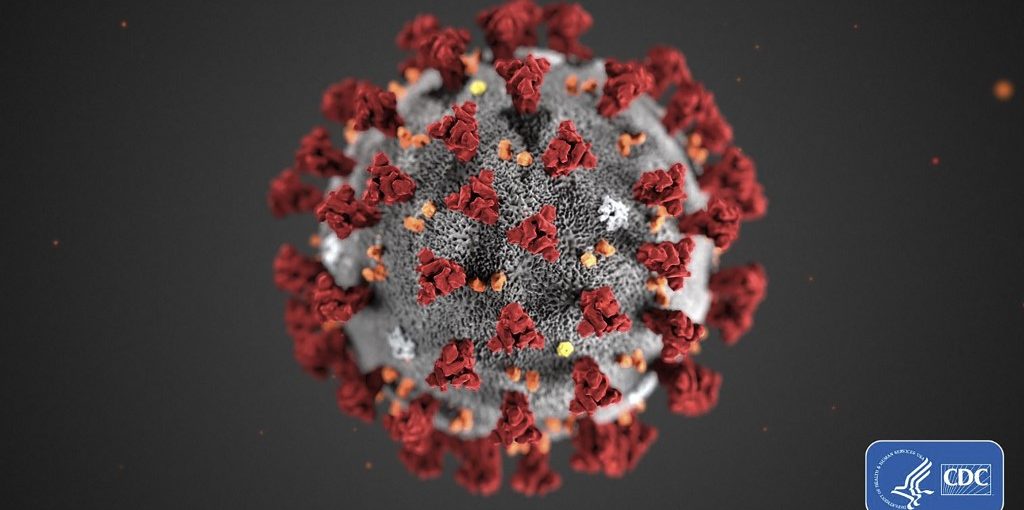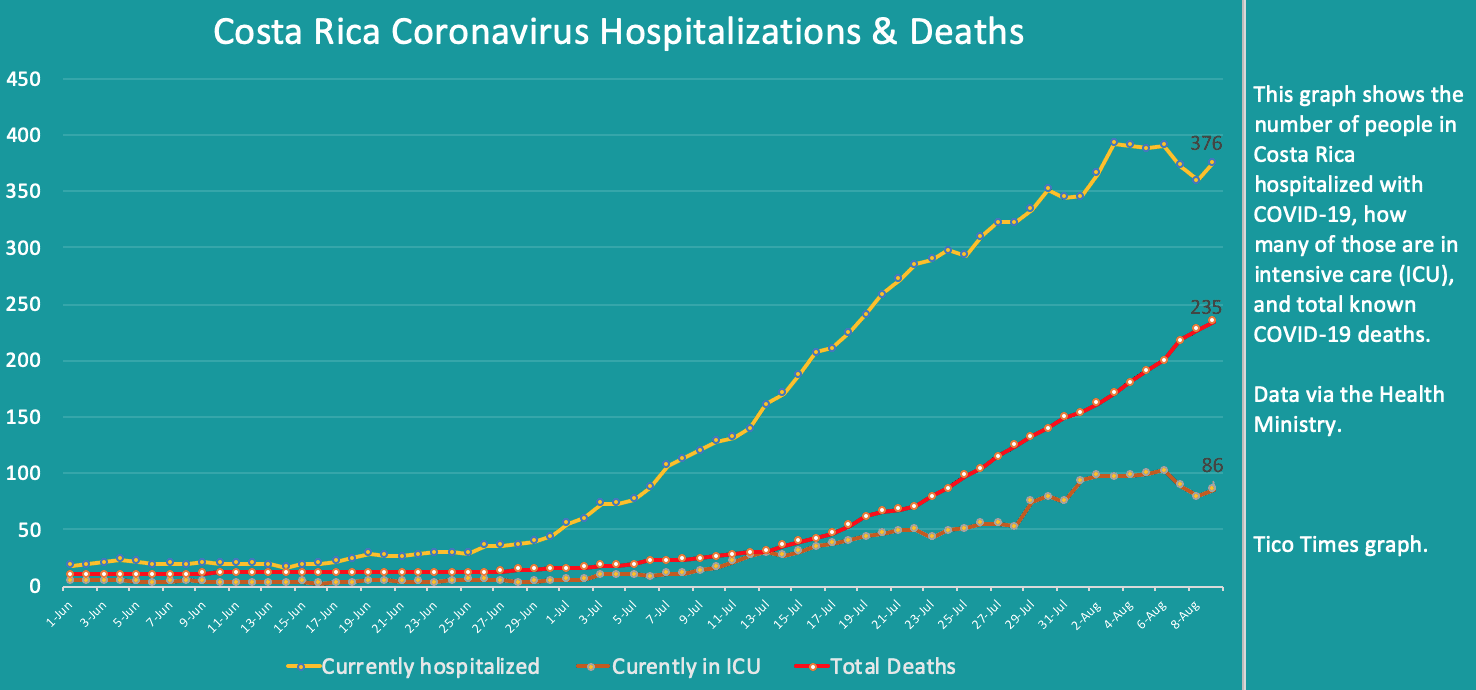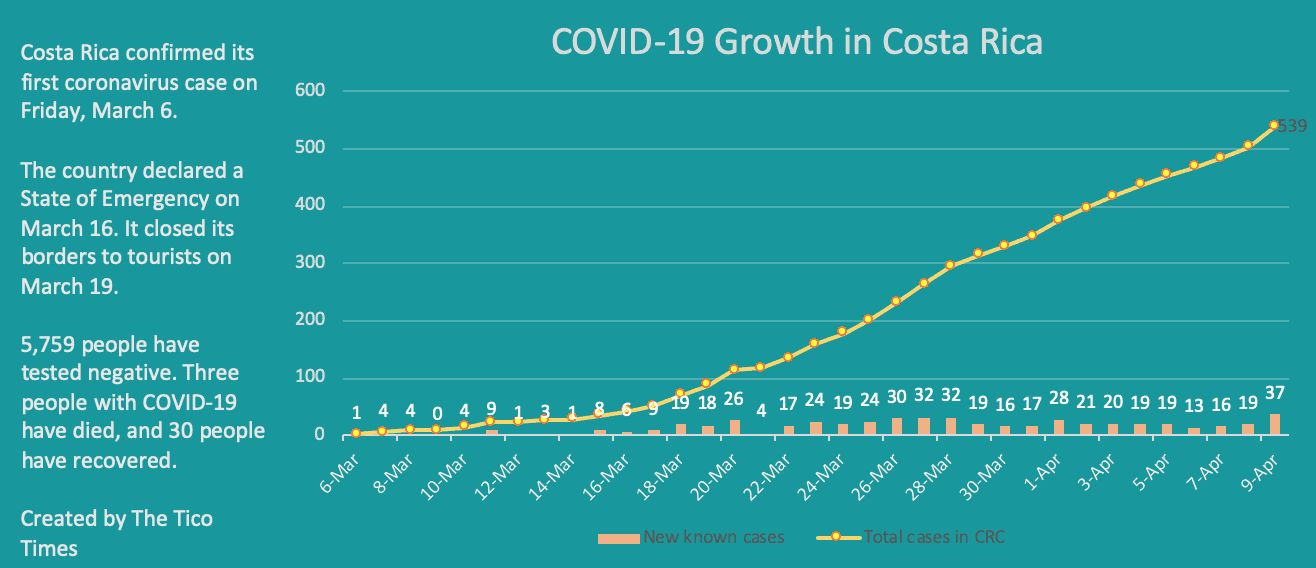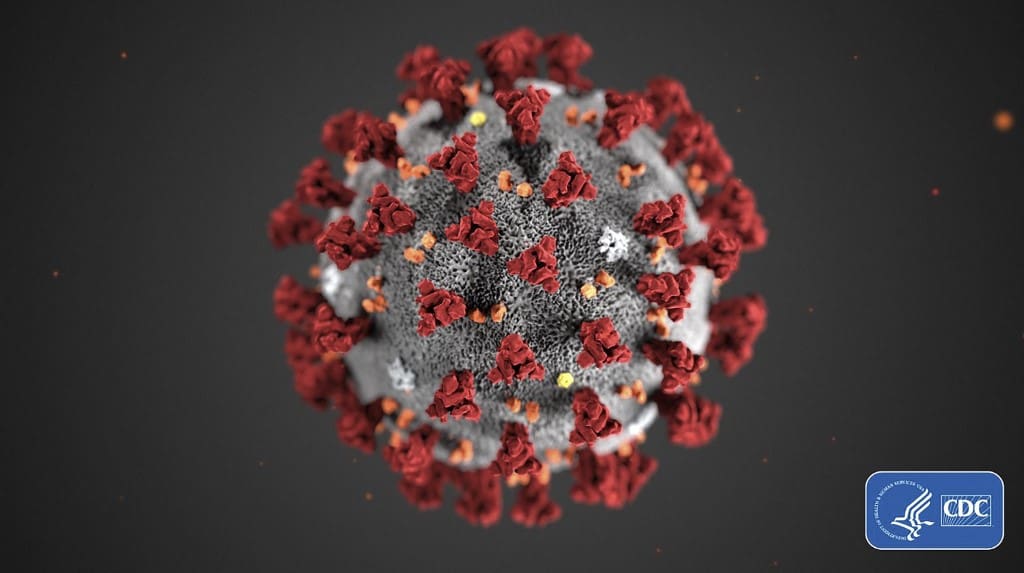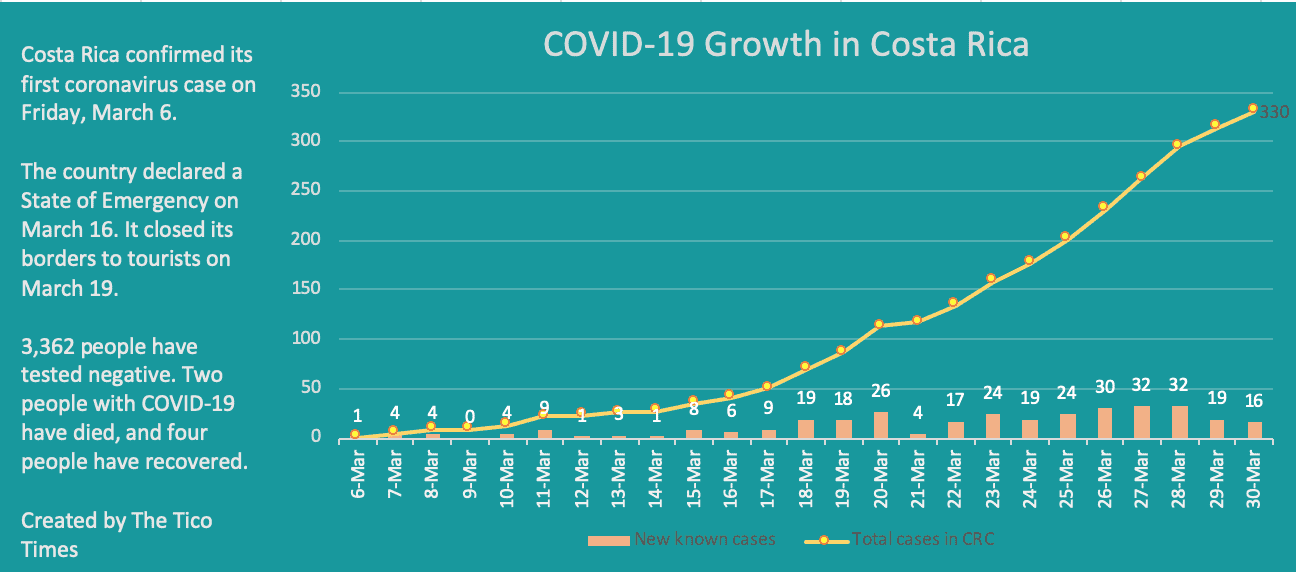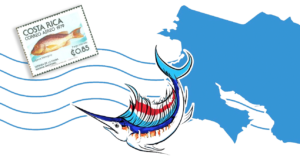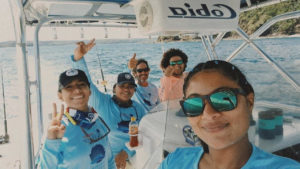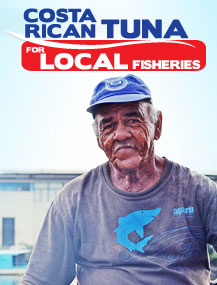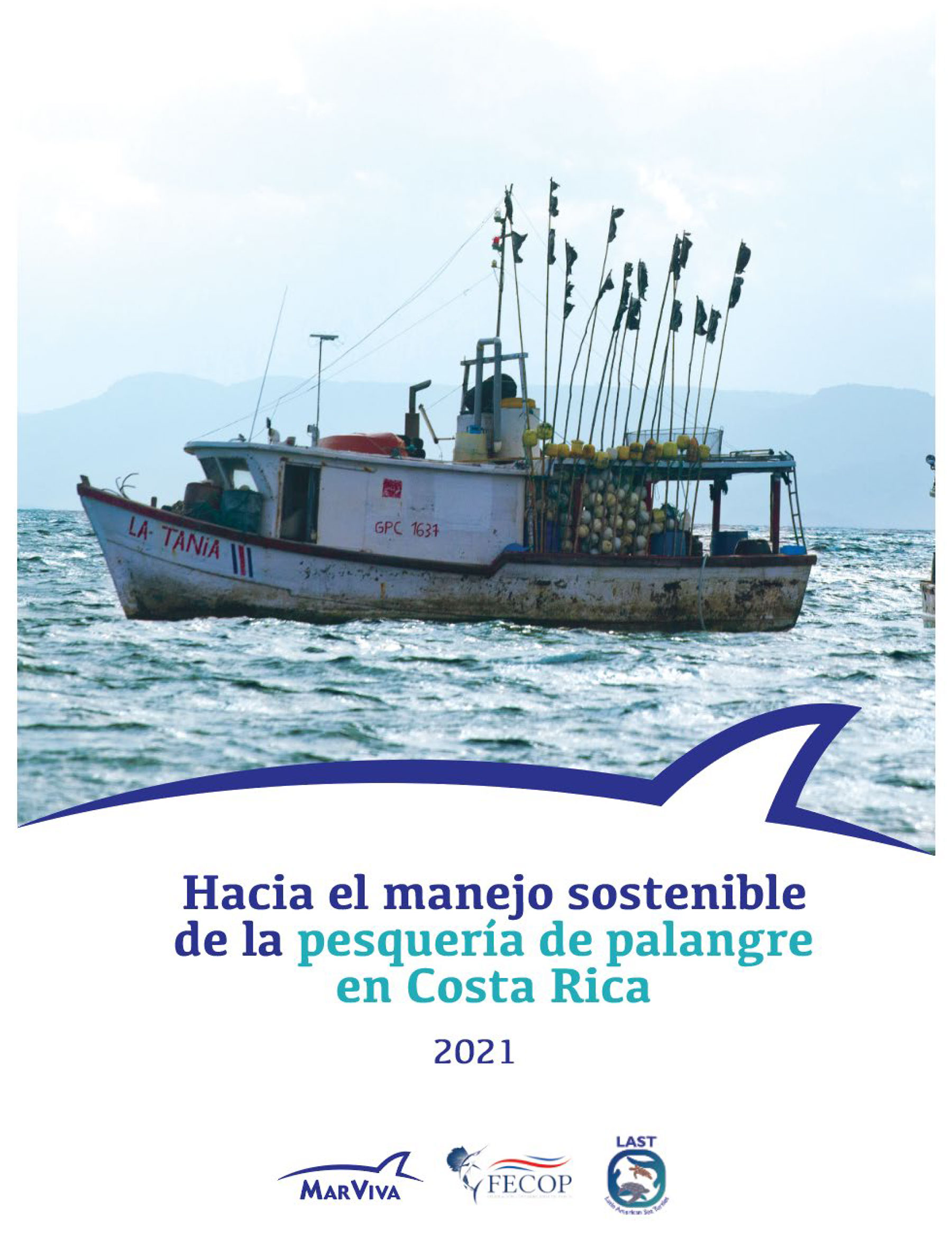Please support Costa Rica fishing tourism and #Postpone, don’t #Cancel your Fishing Trip. Gracias!
Here’s what you need to know today in Costa Rica Today August 9th, 2020
Costa Rica is still not accepting travelers from the USA. European and Canadian tourists may enter but only if they secure and show evidence of required insurance and Covid19 negative test results. If you happen to be in Costa Rica, charter boats are active and fishing can be arranged according to Covid19 guidelines set forth by the Costa Rican Government. Please inquire with charter and lodges about safety guidelines.
From what countries is Costa Rica accepting commercial flights?
Starting August 1, commercial flights can arrive from the following countries:
Germany, Austria, Belgium, Canada, Denmark, Slovakia, Slovenia, Spain, Estonia, Finland, France, Greece, Hungary, Iceland, Italy, Lithuania, Liechtenstein, Latvia, Luxembourg, Malta, Norway, Netherlands, Poland, Portugal, United Kingdom, Czech Republic, Sweden, Switzerland.
This set of countries is also what’s listed on the Embassy of Costa Rica’s website.
By the Tico Times www.ticotimes.net
Costa Rica announced seven new coronavirus-related deaths over the past day for a total of 235, according to official data released Sunday afternoon by the Health Ministry
Three-hundred and seventy-six people are hospitalized with COVID-19; 86 are in intensive care.
The Health Ministry has confirmed 23,286 cumulative known coronavirus cases. This represents 484 more cases compared to Saturday.
Of these, 447 people resulted positive via a PCR test over the past 24 hours, while 37 were identified without a test.
Sunday, 141 more people were classified by health authorities as recovered. Costa Rica has 15,321 known active cases and 7,730 recoveries.
Most hospitalized patients have at least one risk factor, with hypertension, diabetes, obesity and smoking being the most common.
Active coronavirus cases in Costa Rica
Starting July 25, Costa Rica considers some patients as confirmed cases without requiring a positive test. This only applies if a person living with someone who has tested positive begins exhibiting symptoms of COVID-19.
The Health Ministry’s definitions also qualify certain patients as recovered based on time rather than a negative test.
The below graph shows Costa Rica’s test-positivity rate. (Cases confirmed without a test are excluded from the graph.)
Costa Rica has confirmed 595 total cases of the novel coronavirus, the Health Ministry announced Sunday afternoon.
The figure marks an 18-person increase over the same time Saturday.
Nineteen people are currently hospitalized with COVID-19 — 14 of them in intensive care. The age range of patients in intensive care is from 35 to 85 years old.
Three people have died after contracting COVID-19, and 56 people have recovered — seven more than Saturday — meaning Costa Rica has 536 active cases.
Government introduces financial support platform
President Carlos Alvarado and the Costa Rican government announced on Thursday a platform that will support citizens who have lost their jobs or had their income significantly affected due to the COVID-19 crisis.
The “Bono Proteger” is a temporary monetary transfer of up to 125,000 colones (about $220) monthly for three months.
Eligible people include: People who were let go during the national emergency; people whose job was suspended during the national emergency; people who had their job hours reduced by 50% or more; and independent and seasonal workers who have been affected.
The platform will be accessible at: proteger.go.cr.
The process is free and should only be completed via the official website. Users can log in with their cédula or DIMEX. They will need to provide an International Bank Account Number (IBAN) for the money transfer and documentation supporting how their income was affected by the coronavirus crisis.
Users will never be asked to provide their bank password, and no institution will ask for personal information via a phone call, e-mail or WhatsApp message.
The platform was not accessible for much of Thursday — likely due to high demand — but the government assured it will remain active throughout the national emergency.
The United States Embassy in Costa Rica has coordinated with United Airlines to offer a repatriation flight from Juan Santamaria Airport (SJO) near San José to Houston, Texas (IAH) on Friday, April 17.
Click below for details:
U.S. Embassy offering April 17 repatriation flight from Costa Rica
News Updates: 4/09/2020
Costa Rica registers largest day-to-day increase in known COVID-19 cases
Costa Rica has confirmed 539 total cases of the novel coronavirus, the Health Ministry announced Thursday afternoon.
The figure marks a 37-person increase over the same time Wednesday and is the largest day-to-day increase that Costa Rica has recorded.
Nineteen people are currently hospitalized with COVID-19 — 13 of them in intensive care. The age range of patients in intensive care is from 35 to 85 years old.
Three people — including a 45-year-old with no underlying health risks — have died after contracting COVID-19, and 30 people have recovered, meaning Costa Rica has 506 active cases.
Update: Costa Rica registers third death due to coronavirus
This handout illustration reveals ultrastructural morphology exhibited by the novel coronavirus, COVID-19. Note the spikes that adorn the outer surface of the virus, which impart the look of a corona surrounding the virion, when viewed electron microscopically. (AFP PHOTO / CENTERS FOR DISEASE CONTROL AND PREVENTION / ALISSA ECKERT / HANDOUT
A 45-year-old man became the third person with COVID-19 to die in Costa Rica, the Health Ministry said Wednesday evening.
The man had been at Hospital San Juan de Dios in San José and in intensive care. He had no known risk factors, according to the Health Ministry.
“We mourn this death, and we show solidarity with his family,” President Carlos Alvarado wrote on social media. “No one is exempt from becoming seriously ill or losing their lives.
“Please, let’s stay home.”
The 45-year-old, who had been hospitalized in intensive care for 10 days before his death, likely contracted COVID-19 during a recent trip to the United States. The Costa Rican citizen was a resident of San José, per the Health Ministry.
He became Costa Rica’s first known death due to COVID-19 since March 19. Two elderly men, both 87-year-old Ticos, have also died after contracting the coronavirus.
Costa Rica has confirmed 502 cases of the novel coronavirus, the Health Ministry announced earlier Wednesday.
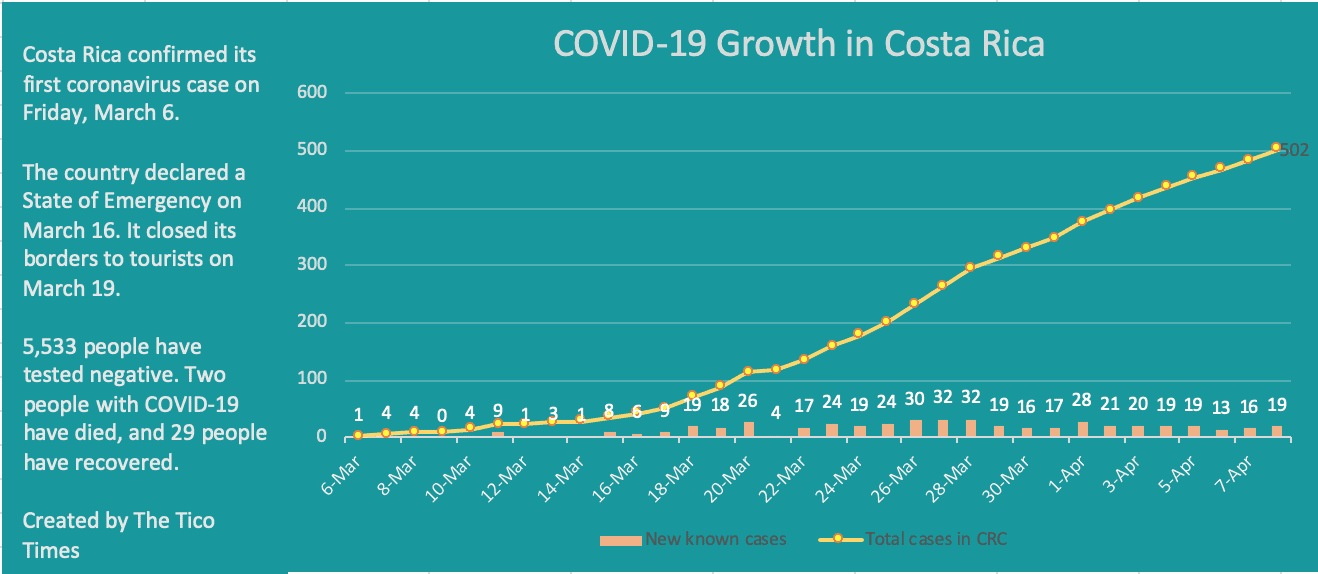
Twenty-two people are currently hospitalized, with 14 in intensive care. Twenty-nine people have recovered after testing positive for COVID-19.
If you believe you may have contracted COVID-19 or have questions regarding the coronavirus, contact Costa Rican health authorities by dialing 1322.
News Brief: Residents can leave Costa Rica without losing status
sta Rica residents can leave the country without losing their residency status, the Immigration Administration confirmed to The Tico Times. However, non-citizens will not be allowed to re-enter the country until at least April 13.
The Immigration Administration statement, based on the decree published in official government newspaper La Gaceta, clarifies a measure enacted by Costa Rica in late March. At the time, President Carlos Alvarado said “all foreigners residing [in Costa Rica] or with regular migratory status in the country who leave the national territory will automatically lose their immigration status.”
The U.S. Embassy in San José has also confirmed with the Costa Rican government that “legal residents who depart Costa Rica … will not have to begin the residency process again.”
Both countries recommend avoiding all nonessential international travel, and the U.S. Embassy says its ability to provide repatriation assistance “may become increasingly limited” as the COVID-19 situation develops.
COVID19 Update: Time to reel in those fishing trips and postpone (don’t cancel) for another day
Yes, we know – you’ve been planning this fishing trip in Costa Rica for months or even years – and now all the borders, beaches, and hotels are closed. Nearly all of Costa Rica’s economy is tourism based and sport fishing reels in over 600 million USD annually – dealing a huge blow to captains, mates, hotels, transport companies, restaurants..etc. So as you can imagine, this virus is dealing a huge blow to not only the health of locals but their ability to earn income as well. Here are some updates brought to you by the Tico Times – Costa Rica’s leading English language newspaper. Please help support Costa Rica’s tourism sector by postponing your fishing trip and not canceling. #SupportLocalTourism
Check Here For COVID-19 News and Developments
Updates by The Tico Times
The coronavirus pandemic has impacted daily life in Costa Rica, which has declared a State of Emergency and enacted sweeping measures to slow its spread.
Here’s what you need to know today:
U.S. Embassy gauging flight interest
The U.S. Embassy in Costa Rica is gauging interest from U.S. citizens who may require a repatriation flight home.
Most airlines have suspended service to Costa Rica, and Delta Airlines’ last confirmed flight until May 2 is today. The U.S. Embassy has been told that flight is full.
“The Embassy is working with airlines to gauge demand for either additional commercial flights or U.S. government-organized flights if no commercial flights are available,” it said in an alert to citizens.
If you are a U.S. citizen interested in being added to a list for any potential U.S. government-organized flight, the Embassy asks that you submit this online form. If you are unable to complete the online form, citizens should email ACSSanJose@state.gov.
Juan Santamaría International Airport (SJO) in Alajuela maintains a list of airlines and their scheduled service on their website.
More than 1,700 people ticketed for violating driving restriction
More than 1,700 people have been ticketed for violating Costa Rica’s nationwide nighttime vehicle restriction, according to the Public Security Ministry (MSP).
More than 600 people were fined on Saturday night alone, while MSP ticketed 331 others Sunday night.
The vehicle restriction, meant to curb nonessential driving, was first enforced the night of March 24. It bans the majority of vehicles — night workers and essential services are among the exceptions — during the following hours:
- Monday night through Thursday night: From 10 p.m. to 5 a.m. the following day.
- Friday night through Sunday night: From 8 p.m. to 5 a.m. the following day.
MSP is supporting a law project that would increase the fine from $40 to about $180.
Naked man arrested at Costa Rica airport
Here’s an odd story from Monday afternoon: Costa Rican authorities detained a man who had trespassed onto the ramp at Juan Santamaría International Airport … and was fully naked.
The man, surnamed Ávila, had climbed the perimeter fence and was roaming the tarmac of Costa Rica’s busiest airport when he was stopped.
The man was taken to the Red Cross for a medical evaluation, and airport police said they were coordinating with the Alajuela Prosecutor’s Office to pursue charges.
Costa Rica surpasses 300 known cases of coronavirus
Costa Rica has confirmed 314 cases of the novel coronavirus, the Health Ministry announced Sunday afternoon.
The figure marks a 19-person increase over the same time Saturday.
In addition, 13 people are currently hospitalized with COVID-19 — six of them in intensive care. Of the six, only one is an elderly adult, according to health authorities.
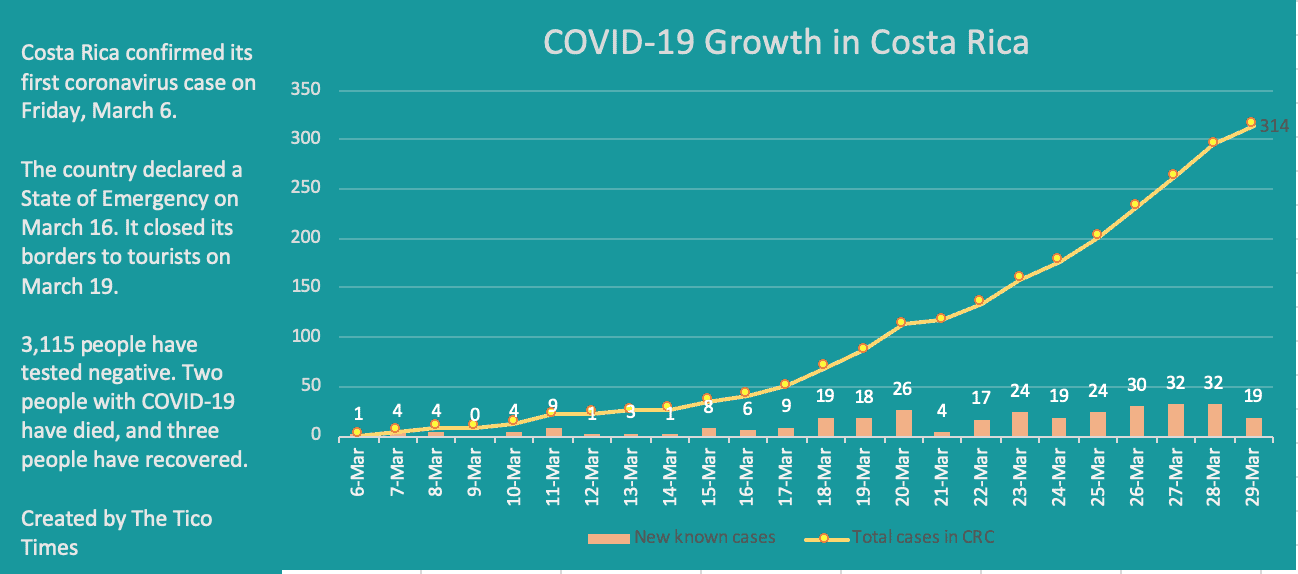
After confirming its first case of COVID-19 on March 6, it took 14 days for Costa Rica to reach 100 cases. Costa Rica surpassed 200 known cases just five days later, on March 25, and passed 300 cases four days after that.
Two elderly adults have died after contracting COVID-19, and three people have recovered.
The 314 cases are located in 51 cantons across all seven of Costa Rica’s provinces.
Below is a map of cantons with confirmed COVID-19 cases. Click on a blue marker for more information:
Román Macaya, the president of the Costa Rican Social Security System, said the Comptroller General authorized on Saturday a purchase of additional medical equipment, including x-ray machines, for use by the public health system.
China donates test kits, medical supplies
China is donating a “significant amount” of test kits and medical supplies to Costa Rica, the Foreign Ministry announced.
The medical supplies include surgical masks and CPAP machines, while the COVID-19 kits will help Costa Rica achieve its goal of expanding its testing capabilities.
“The Strategic Alliance that Costa Rica and China promote has borne multiple fruits, and this cooperation represents a manifestation of the closeness that both peoples maintain,” said President Carlos Alvarado in a statement from the Foreign Ministry. “The excellent state of bilateral relations is manifested in the permanent exercise of the principles of equality, mutual trust, cooperation and mutual benefits.”
More than 500 detained crossing the border
Migration Police in Los Chiles, Alajuela, detained more than 500 people who entered the country illegally in recent days.
The majority entered Costa Rica from Nicaragua at unauthorized border-crossing points, according to immigration authorities.
The Vice Minister of the Interior and Police, Carlos Andrés Torres, said authorities are increasing their efforts near Costa Rica’s borders in anticipation of heavier undocumented migration patterns during Semana Santa (Easter Holy Week).
National Police monitor Costa Rica’s beaches
National Police are enforcing the Costa Rican government’s decision to close its beaches, the agency said.
Those who don’t respect the nationwide closure, which was announced Monday, could face criminal prosecution.
National Police reported that over the past weekend, “the influx of tourists was minimal” on Costa Rica’s beaches.
New driving restrictions begin tonight
Starting at 10 p.m. Tuesday, the majority of vehicles will be banned from Costa Rica’s roads.
The measure is part of Costa Rica’s efforts to slow the spread of COVID-19 by limiting nonessential travel. With some exceptions, vehicles will be banned between 10 p.m. and 5 a.m. beginning tonight.
Violators will be fined 22,188 colones (about $40).
Exceptions will be made for emergencies and transportation of cargo, among others, according to Monday’s initial announcement of the measure. The Costa Rican government will release further details later today.
Costa Rica announces stringent measures as coronavirus count reaches 158
Costa Rica has confirmed 158 cases of the novel coronavirus, the Health Ministry announced Monday afternoon.
The figure marks a 24-person increase over the same time Sunday. Seven people are currently hospitalized with COVID-19, and three are in intensive care.
At the same time, President Carlos Alvarado announced the following four measures in order to help slow the spread of coronavirus throughout Costa Rica.
- All beaches throughout Costa Rica have been ordered to close to the public. Previously, some municipalities had chosen to close their beaches, but this was not a country-wide measure until Monday.
- Religious centers throughout the country have been obligated to close.
- Starting Tuesday, there will be a nationwide vehicle restriction preventing the majority of people from driving between 10 p.m. and 5 a.m. More details, including a full list of exceptions, will be announced Tuesday. Exceptions to the nighttime driving ban will include emergencies and transport of cargo, among others.
- Starting Tuesday, “all foreigners residing [in Costa Rica] or with regular migratory status in the country who leave the national territory will automatically lose their immigration status.” This applies to foreign residents (temporary or permanent) of all nationalities and has no specified end date.
“People who have a [migratory] status in this country — whether it be resident, refugee, asylum seeker or another special case — if they leave the country, will have that condition eliminated,” said Michael Soto, Minister of Public Security. “What we intend is to prevent people from leaving the country. It’s not convenient for the country, and it’s not convenient for those people, but we want to leave it very clear: A person with a migratory status, even if he or she is an applicant, will not be able to return to the country because that condition will have been removed.
“A call to foreigners [in Costa Rica] who leave the country during Semana Santa to other countries in the region: The idea is that you don’t do this, and if do, you won’t be able to return [to Costa Rica] due to this health situation.”
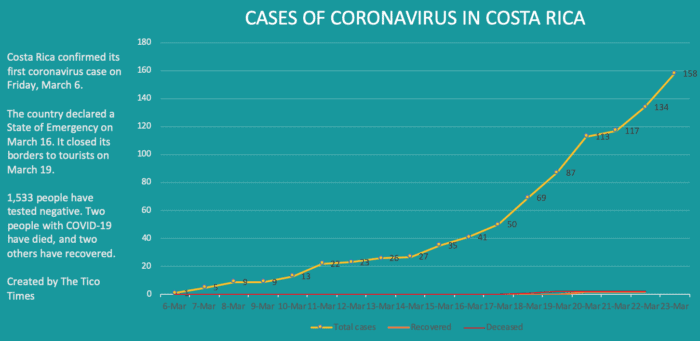
Below is a list of confirmed coronavirus cases by canton:
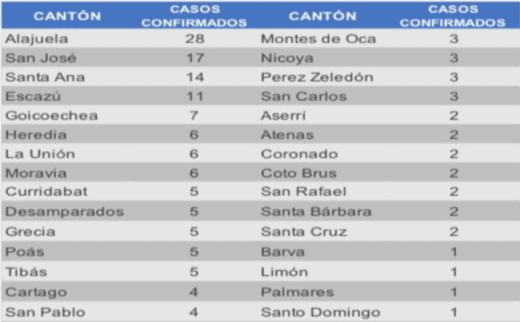
The Public Security Ministry on Monday activated a website through which the public can report businesses that are not complying with the Health Ministry’s guidelines in response to COVID-19.
The government reinforced that everyone — particularly elderly adults — remain home and limit contact with others as much as possible. Two people, both 87-year-old Costa Ricans, have died after contracting COVID-19.
“There will be more grave cases, and there will be more deaths,” said Health Minister Daniel Salas. “What we’re reinforcing is that if we all act responsibly, we will have the chance to prolong the lives of those who get gravely sick at a hospital.”
In addition, authorities asked that Costa Ricans limit non-essential water use in order to minimize shortages.
Salas said the Health Ministry is working with the the Costa Rican Social Security System (CCSS, or Caja), the University of Costa Rica (UCR) and other public universities to expand Costa Rica’s COVID-19 testing capacity.
If you believe you may have contracted COVID-19 or have questions regarding the coronavirus, you can contact Costa Rican health authorities by dialing 1322.
This is a developing story and is being updated.
More Sport Fishing News and Articles from FECOP
[post-carousel-pro id=”5407″]

